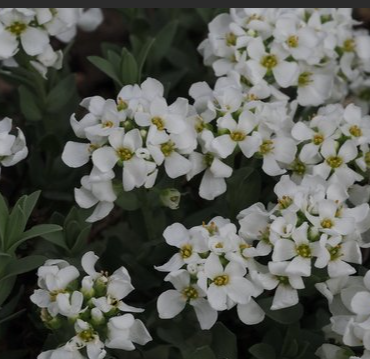Information report for AA44G00626
Gene Details
|

|
Functional Annotation
- Refseq: XP_006401188.1 — transcription factor MYB36
- Swissprot: Q9FKL2 — MYB36_ARATH; Transcription factor MYB36
- TrEMBL: A0A087GBQ1 — A0A087GBQ1_ARAAL; Uncharacterized protein
- STRING: A0A087GBQ1 — (Arabis alpina)
- GO:0008285 — Biological Process — negative regulation of cell proliferation
- GO:0035987 — Biological Process — endodermal cell differentiation
- GO:0045597 — Biological Process — positive regulation of cell differentiation
- GO:0045892 — Biological Process — negative regulation of transcription, DNA-templated
- GO:0045893 — Biological Process — positive regulation of transcription, DNA-templated
- GO:2000021 — Biological Process — regulation of ion homeostasis
- GO:2000067 — Biological Process — regulation of root morphogenesis
- GO:0048226 — Cellular Component — Casparian strip
- GO:0000975 — Molecular Function — regulatory region DNA binding
- GO:0003700 — Molecular Function — transcription factor activity, sequence-specific DNA binding
Family Introduction
- MYB factors represent a family of proteins that include the conserved MYB DNA-binding domain.The first MYB gene identified was the ‘oncogene’ v-Myb derived from the avian myeloblastosis virus . Evidence obtained from sequence comparisons indicates that v-Myb may have originated from a vertebrate gene, which mutated once it became part of the virus. Many vertebrates contain three genes related to v-Myb c-Myb, A-Myb and B-Myb and other similar genes have been identified in insects, plants, fungi and slime moulds. The encoded proteins are crucial to the control of proliferation and differentiation in a number of cell types, and share the conserved MYB DNA-binding domain. This domain generally comprises up to three imperfect repeats, each forming a helix-turn-helix structure of about 53 amino acids. Three regularly spaced tryptophan residues, which form a tryptophan cluster in the three-dimensional helix-turn-helix structure, are characteristic of a MYB repeat. The three repeats in c-Myb are referred to as R1, R2 and R3; and repeats from other MYB proteins are categorised according to their similarity to either R1, R2 or R3.
- In contrast to animals, plants contain a MYB-protein subfamily that is characterised by the R2R3-type MYB domain. MYB proteins can be classified into three subfamilies depending on the number of adjacent repeats in the MYB domain (one, two or three). We refer to MYB-like proteins with one repeat as ‘MYB1R factors’, with two as ‘R2R3-type MYB’ factors, and with three repeats as ‘MYB3R’ factors.
Literature and News
Gene Resources
Homologs
- Arabidopsis thaliana: AT5G57620.1
- Brassica napus: GSBRNA2T00060690001, GSBRNA2T00148669001, GSBRNA2T00033371001
- Brassica oleracea: XP_013627144.1, XP_013610427.1, XP_013619303.1
- Brassica rapa: XP_009132117.1, XP_009126826.1
- Raphanus raphanistrum: RrC4118_p3, RrC3199_p2
Sequences
CDS Sequence:
- >AA44G00626|Aethionema_arabicum|MYB|AA44G00626
ATGGGAAGAGCACCTTGCTGCGATAAAGCCAACGTGAAGAAAGGGCCATGGTCGCCTGAAGAAGATATCAAACTTAAAGATTATATCGATAAATTTGGTACCGGTGGTAATTGGATCGCTTTACCTCAAAAAATAGGATTGAAGAGATGTGGTAAGAGTTGTAGATTAAGATGGTTGAATTATTTAAGACCAAACATAAAACATGGTGGATTTTCTGAGGAAGAAGATAGTATAATCTTGAGTCTTTACATCAGCATTGGAAGCCGATGGTCTATAATTGCAGCTCAACTTCCTGGAAGAACAGATAACGATATTAAAAACTATTGGAACACAAAATTGAAGAAGAAATTACTTGGAAGACAAAAACAAATGAATCGTCAAGATTCAATTTCTGATTCTACTGACAATAACAATAACAACAAAAGTCCTCAGAATCTAAGTAATTCAGCCATGGAAAGACTTCAACTTCATATGCAGCTTCAAAATCTACAAAGTCCTTTTTCTAGCTTCTACAATAACCCTATCTTGTGGCCCAAGCTTCATCCTTTGCTGCAGACTCCTCAACCGAATCAAAACCCTAAACTTGCATCTCAAGAAACCTTCCAATCCTTAGGAGTTAATAATAACAACAACAATGGAGTCTCTCCTCTTTATGATCACTACACTCAGAATTCATCTTCAGAGATCATAGAGAATTCTCCAAACCCTAATCAAGATTTTCAACCTAATTTTGGGTTTTCTCATGATCATAACAACATGGGGCTAATGAGTAGAAGTTCTAAGGAATTGTTTCAAGTGGGGAATGAGTTTGAGTTAGTGAATGGATCTAATTGGTGGTCAGAAGTGGAGTTAGAGAAGAAAACGACGTCGTCGAGCTCATGGGGATCAGCTTCGGTTCTTGATCAGAATACAACAGATCAAGGGATGGTTATGCTTCAAGATTATGCTCAGATGAGTTACCACAGTGTG
Protein Sequence:
- >AA44G00626|Aethionema_arabicum|MYB|AA44G00626
MGRAPCCDKANVKKGPWSPEEDIKLKDYIDKFGTGGNWIALPQKIGLKRCGKSCRLRWLNYLRPNIKHGGFSEEEDSIILSLYISIGSRWSIIAAQLPGRTDNDIKNYWNTKLKKKLLGRQKQMNRQDSISDSTDNNNNNKSPQNLSNSAMERLQLHMQLQNLQSPFSSFYNNPILWPKLHPLLQTPQPNQNPKLASQETFQSLGVNNNNNNGVSPLYDHYTQNSSSEIIENSPNPNQDFQPNFGFSHDHNNMGLMSRSSKELFQVGNEFELVNGSNWWSEVELEKKTTSSSSWGSASVLDQNTTDQGMVMLQDYAQMSYHSV